TRAVEL INTERVIEW with Mark Wiens of Migrationology
American Mark Wiens had the great fortune to grow up on several different continents around the world. He had some unconventional schooling, learned languages, and was immersed in different cultures. Not surprisingly, Mark developed a passion for travel and… his better-known passion, eating!
In this insightful interview we get Mark’s perspectives on growing up roaming the world vs living in a fixed place, home-schooling vs public schooling, tips on frugal living and, of course, food. Let’s get started…
Q1. You grew up living/traveling around the world with your family in places like Europe and Africa. What does your father (parents?) do that lead to them working all over the world?
My parents work with a Christian mission organization. We originally made plans to move to DR Congo (which was at the time Zaire) to be more specific. Because it was a Belgian colony, we first went to France for language training. However, we ended up living in such a remote area of Northern Congo that French was hardly even spoken.
Q2. What do you believe are the great things about growing up in several different places, rather than in just one place for your entire childhood?
A diverse worldview – about people, culture, food, values, traditions, perspectives, and relationships. There’s no better way to gain practical, world useful knowledge, than by experiencing life in a variety of different countries.
Q3. Do you think you missed out on anything by not living in one place your whole childhood? (or- Any negative aspects of growing up moving from place to place?)
A few things, like I didn’t get to spend too much time with relatives and I developed a habit of being able to say “goodbye’s” too easily (might seem alright, but I’m sometimes challenged with commitment).
But do the benefits I received from living overseas outweigh the things I missed? I certainly think so.
And would I trade the experiences I had for living in one place and playing the latest video games or being able to watch tv shows? Never.
There will always be trade-offs Growing up moving or remaining stable in your home country all your life, each have ups and downs. What we have to do is make the most of whatever situation we are given.
Q4. Would you / will you do the same when you raise kids? Why or why not? And any specific places you’d like them to live?
Yes, though I’m still frightened at the thought of raising kids. When I’m ready, I will strive to provide them with an awareness of other cultures that can only come from interaction with people from around the world.
Being able to connect, converse, and even share meals with others is such a powerful skill. Possibly a mixture of Thailand, Kenya, USA and I guess wherever else we may travel!
Q5. As a kid you experienced both home schooling for several years and regular school. Could you compare / contrast the two. Do you think one is better than the other for some reasons? Or each have their good & bad points?
This is a great question, and as for my experience, I can only speak for the first 3 elementary years – I’m sure things might be different comparing home school versus regular school on a high school level.
I would say that it depends on the parents and personalities of the kids. Friends and social activities are extremely important for teenagers. So if parents decide to home school their kids throughout high school, they really need to make an effort for them to fit into social settings with friends (that is if they are not living in the complete bush).
If parents are over-sheltering and don’t allow their kids to interact as they need, home school can be a disaster. At the same time, if the kids can develop social skills and friend-making skills adequately, home schooling can be a good option.
For myself, I’m grateful that I wasn’t home schooled longer than a few years and was instead able to develop some extremely valuable and lasting relationships with people I went to high school with. My graduating class was only 50, a small number, but a great and manageable size to get to know everyone quite well. Out of 50 students, I think we probably had 20 nationalities represented, making everyday at school a lesson in cultural diversity.
While there are bonuses in each method, I would lean on the regular school side, especially for high school.
Q6. Quite impressively, you were able to pay for university and your own living expenses as well as save a good chunk of money by selling things on eBay and Craigslist. Interesting! Do you think many people could be as successful selling things online, or were you an exception to the rule? Ie. How easy is it to make decent money selling online?
It’s not too easy, and just like any business, it’s not free of risk.
Somewhat by luck, I was able to get a job during university with a glorified garbage company. We picked up truckloads of things people didn’t want anymore, some of the things still having value. So I was able to initially sell things which I got for free, allowing me to sell with no risk of loss. After saving some money, I was more comfortable to actually purchase things, re-sell them and turn a profit.
While on eBay and Craigslist you don’t have to rent property, you still need to be a good online salesman, while handling marketing, selling, and delivering your product. It can be tough. Make a mistake or get a grumpy customer, and you could wind up with a few damaging bad reviews – and with online business, reviews can make all the difference.
As difficult as it is, you’ve got to give it a try for yourself, because no matter how hard something is, it’s possible if you put effort into it.
Q7. You’ve been quite successful at minimizing your living costs, saving money, and living well off a modest income. You’ve written several informative posts on Migrationology explaining how you do that and giving advice to others about how to do the same.
Where did you learn those concepts, skills and mindset? From your parents? From reading books? From school? Or are they ideas and habits that just came naturally to you?
The foundation of my saving and minimizing living costs began with my Father. Just little things, for instance when I was in high school, I was only allowed to drink 1 soda per week on Friday night. Of course as a teenager, I would sneak out and break the rule, but the impression of that rule was still on my mind. When I would have that 1 soda, I would be so much more appreciative (than if I could have a soda everyday) of it.
Take that to today, and now I don’t even really like soda anymore, but the principle about limiting unnecessary expenses and lowering needs is still there.
Other ideas about saving and living frugally have just been a result of needing to do it – stretching the trip as long as possible. We can talk about saving all we want, but in the end we’ve got to do it and see what we’re capable and comfortable with.
Here’s one of my posts: Simple but Effective Strategies to Save Money to Travel
Q8. You’re currently living in Bangkok, Thailand. How long have you been there? Do you think you’ll continue living there a lot longer? Or do you want to start traveling more?
I have been living in Bangkok, while traveling in and out occasionally, for about 3.5 years. Yes, as I have a Thai girlfriend, I will continue to be in Thailand. But at the same time, we have plans to do more traveling in the future!
Q9. As anyone who visits Migrationology knows, you LOVE eating different cuisines! Do you also enjoy cooking? Have you ever had a desire to become a chef? If not, why not?
Yes, I’ve loved eating ever since I was a kid.
I do occasionally enjoy cooking, but to be honest, my real passion is eating. That lady down the street that has been stir-frying for 50 years can do it much better than I can. And dining with people like her is the experience I can’t get enough of. So no, I will probably never pursue becoming a chef – unless it’s a street food chef!
Q10. You’ve just written a book ‘Eating Thai Food Guide’. Congratulations! I know this is going to be a tough question, but could you tell us your own personal absolute favorite 3-5 Thai foods?
Thank you!
Here are a few of my favorites:
1. Pad Sataw – stir fried stink beans (also known as bitter bean or petai)
2. Kaeng Som – Southern Thai sour soup
3. Som Tam – Green papaya salad
4. Tom Yum Goong – Thailand’s famous herbal shrimp soup
5. Pla Kahpung Neung Manao – Steamed Asian sea bass in lime and garlic
Here’s my book: Eating Thai Food Guide
Q11. Besides Thai food, what are your 3 favorite international cuisines and why do you love them so much?
Chinese – People tend to think of Chinese food as merely a variety of stir fries, but instead the term of “Chinese cuisine” can hardly even be comprehended. There’s so much diversity and so many regions of cuisine that it’s mind boggling. The diversity, the range of ingredients, and the fact that just about any creature that moves could be edible somewhere in China is awesome. Also, I’m half Chinese on my mother’s side, and my grandfather was actually a Chinese chef in Hawaii, so naturally Chinese food is always my comfort food.
Indian – Flavor takes on an entire new dimension in India. The combination of spices, cooking techniques, and ingredients makes every bite of Indian food a mouthful of excitement. India is probably the only place in the world where I could be a joyful vegetarian because even pure-veg food is so tasty.
Malaysian – Malaysians are perhaps the most passionate people about their cuisine that I’ve ever met. If you can start a conversation in Malaysia about local food, you’ll instantly make many friends. And rightfully so. Malaysian food offers an outstanding combination of flavors, a luscious mix of chilies and coconut milk, and nearly all dishes burst with flavor.
If I had a fourth, I’d add Japanese.
Q12. What’s up for you and Migrationology the rest of 2012 and 2013?
I’m not fully sure right now as I tend to not plan overly far in advance, but I’m thinking about a trip to India and also about traveling to some parts of Thailand I’ve never visited.
—————————————————————————————————————————————–
Thanks, Mark, for sharing your very interesting life story and passion for food & travels. Hope to meet up with you when I pass through Bangkok.
Follow Mark as he eats his way around the world:
FB: migrationology
YouTube: migrationology
—————————————————————————————————————————————






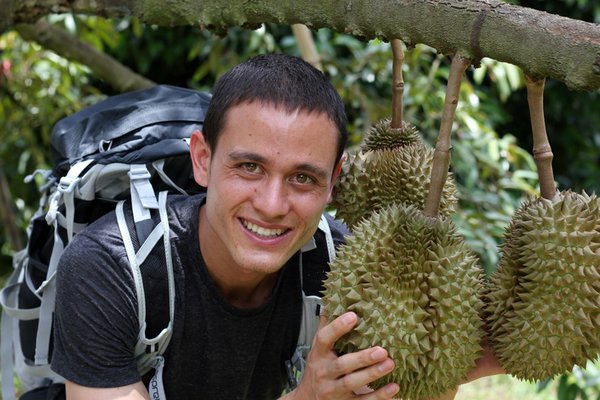




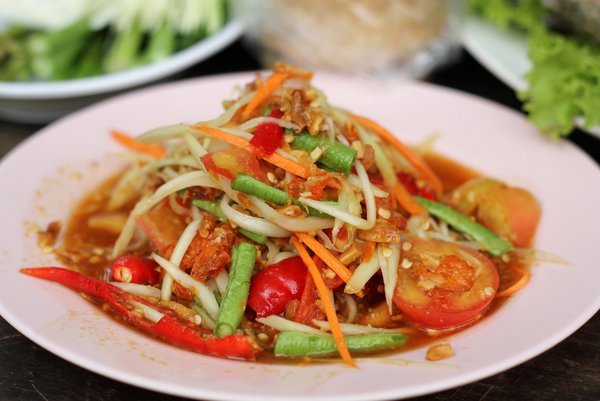
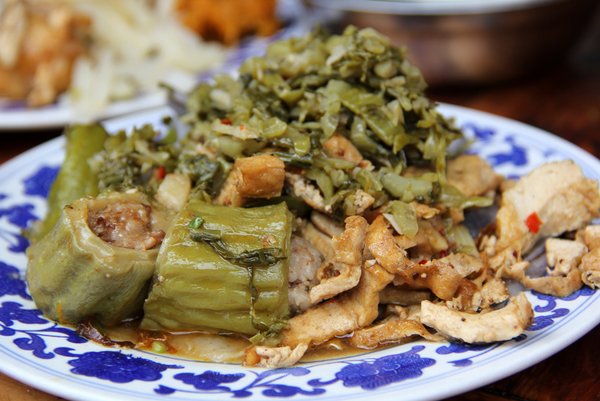



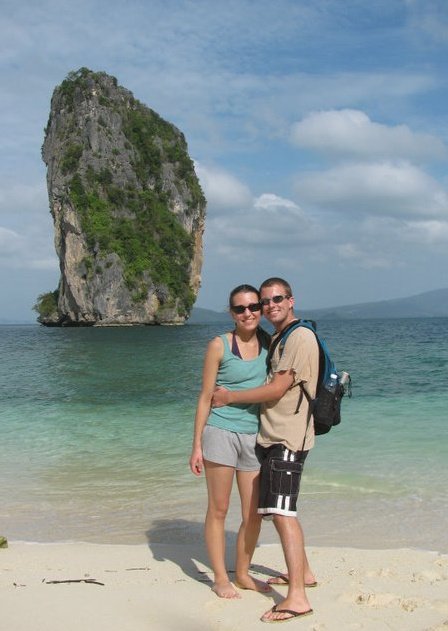

 Hi! I'm Lash, an American nomadic world traveler who's been traveling solo since 1998. I’m passionate about traveling the world nomadically and then sharing it all with you. I hope to inspire you to travel the world, to entertain you with tales from the road, and to help you reach your travel dreams. Welcome!
Hi! I'm Lash, an American nomadic world traveler who's been traveling solo since 1998. I’m passionate about traveling the world nomadically and then sharing it all with you. I hope to inspire you to travel the world, to entertain you with tales from the road, and to help you reach your travel dreams. Welcome! 



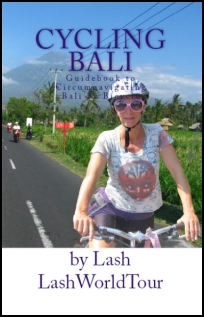
4 pings
Travel Interview: Mark Wiens of Eating Thai Food Website - LashWorldTour » LashWorldTour
2012/12/17 at 8:20 pm (UTC 8) Link to this comment
[…] food. Hope to meet you some day soon in Bangkok. cheers, LashFollow Mark and his Thai food passion:First interview with Mark Eating Thai […]
BOOK REVIEW: Eating Thai Food Guide » LashWorldTour
2013/09/05 at 11:37 am (UTC 8) Link to this comment
[…] interviewed Mark twice, once about his travels and life overseas. The second interview is all about his love of Thai […]